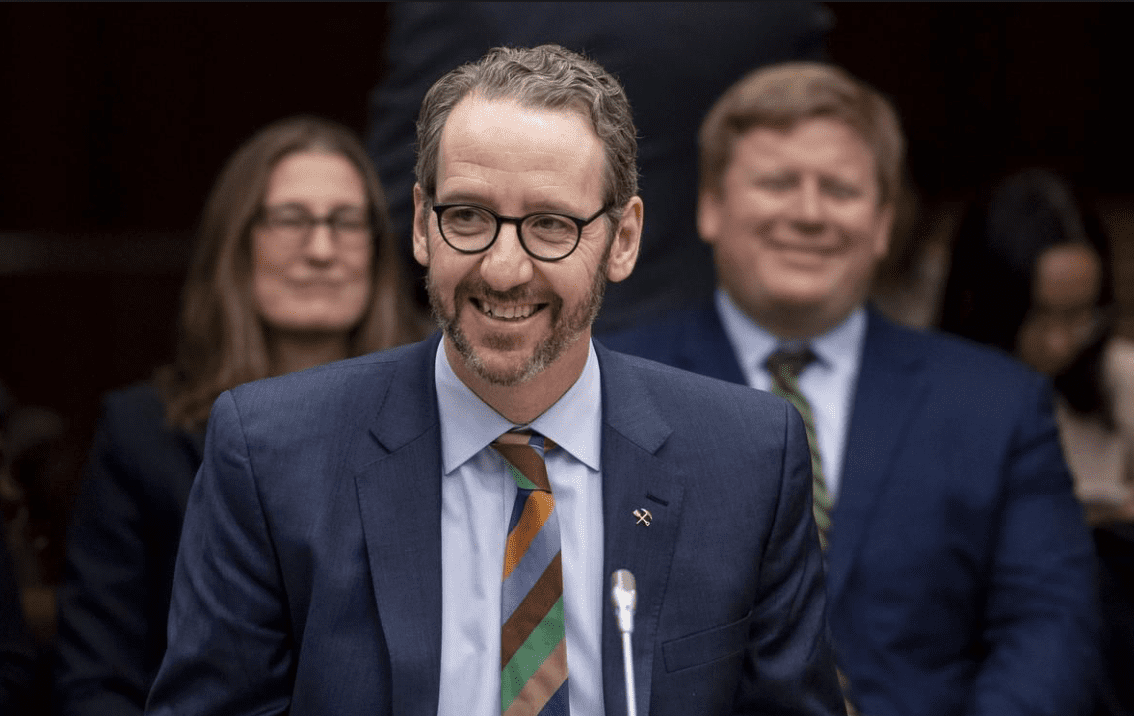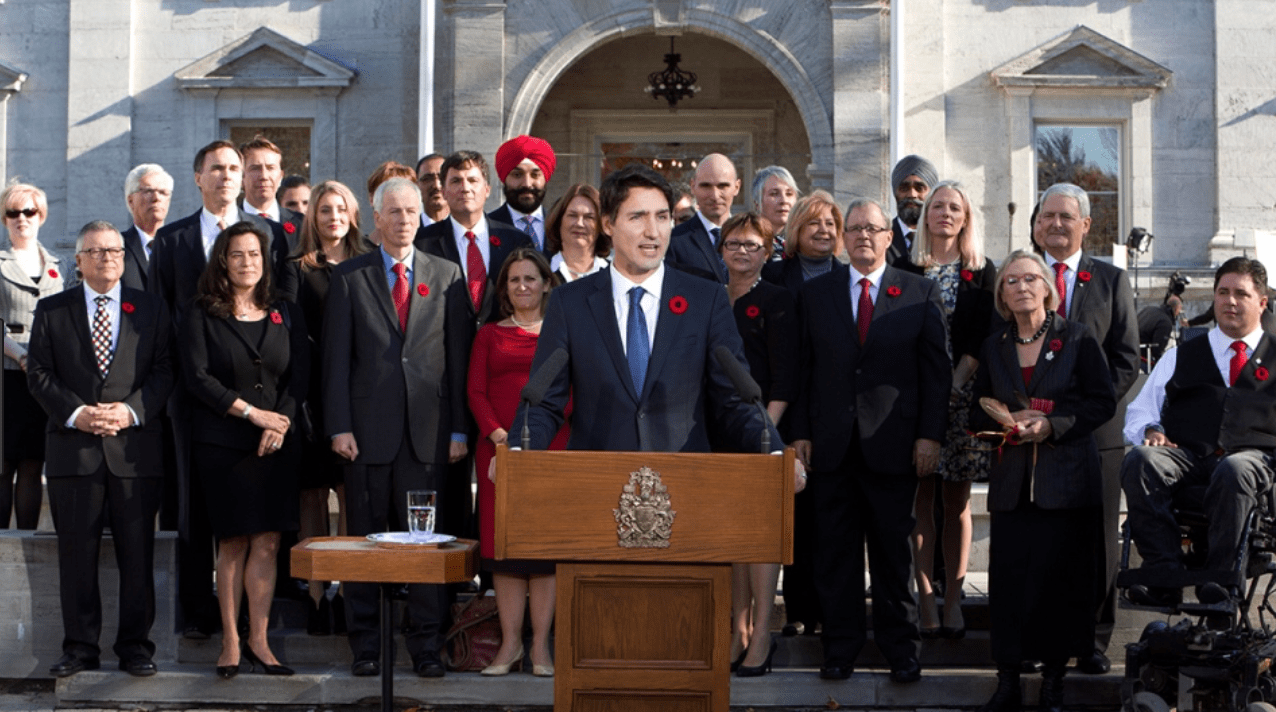This content is restricted to subscribers

The views, opinions and positions expressed by columnists and contributors are the author’s alone. They do not inherently or expressly reflect the views, opinions and/or positions of our publication.

This content is restricted to subscribers
The views, opinions and positions expressed by columnists and contributors are the author’s alone. They do not inherently or expressly reflect the views, opinions and/or positions of our publication.

If you're the sort of person that was looking for a way to brush aside this whole SNC-Lavalin affair, I have a feeling you found it in Wednesday's committee hearings.
Gerald Butts, the prime minister's former principal secretary, made a good, deferential show of complementing everyone he worked with at his time in the PMO, most especially the former attorney general Jody Wilson-Raybould.
He gave his perspective on how events transpired and declared himself innocent of any pressuring, as he saw their chats as friendly encounters. How anyone could see the instrument of the prime minister's will as threatening was not something he could fathom.
This was a decision about jobs, and keeping the economy safe by using all the tools at the disposal of justice officials to prevent damage to jobs. Jobs, jobs, jobs.
"The Prime Minister gave and maintained clear direction to the PMO and PCO on this file. That direction was to make sure the thousands of people whose jobs were, and it bears repeating, are at risk were at the forefront of our minds at all times," he said in his statement, and would harken back to whenever possible.
Though what his testimony offered, likely without intention, is how important political considerations were in the office of Prime Minister Justin Trudeau. How other things, principles say, were more of a trifling matter to be overcome when considering whether to take SNC-Lavalin to trial or not.
The consistent message through Butts' testimony was the decision to intervene and force a deferred prosecution agreement was Wilson-Raybould's alone. He and others in the government were just about adding context to an ongoing, and still changeable, decision. They were not trying to pressure, or even influence her, just give her context, you see. (What the use of giving someone context is when you aren't trying to pressure them into changing their minds is an open question.)
The afternoon testimony, meanwhile, from Clerk of the Privy Council Michael Wernick, and Deputy Minister of Justice Nathalie Drouin, had its own interesting bits. But in the interests of space, I'll keep this part brief, and just talk about the clerk's bit.
Wernick's testimony was a smug spectacle of a man who sees himself infallible. Us serfs who stand at his gracious feet should be grateful for his presence and his service. He does not act as a partisan, and anyone judging him so is mistaken. He has years of service at appointments by a list of prime ministers, and enough security clearances to make your puny brain melt. He is, he says, above reproach.
(Also the country is in massive danger, and speaking at this committee on the issue of SNC-Lavalin is the only way he can let anyone know about that danger.)
He would certainly never issue a threat to Wilson-Raybould, implying her job was at stake as she claimed.
Of course, he also said this at the very end of his opening statement:
"Finally, the Committee may wish to hold hearings on the Attorney General of Canada's Directive on Civil Litigation Involving Indigenous Peoples, issued by the former Attorney General on January 11, 2019," which was very nearly Wilson-Raybould's last day as AG, he added in his delivered statement. "[It] could mark a profound change in Canada's legal landscape. However, it could be repealed or gutted at the stroke of a pen and turn to ashes."
I leave it to you, dear reader, to draw your own conclusions on the reproach-less being that is Michael Wernick.
Anyway, the real meat of the day was to be found in Butts' testimony. There's a part in his opening statement I think is worth deconstructing. Something that wasn't the main thrust of what he said, but I think is worthwhile dwelling on.
In that statement, Butts said one of the reasons the government was so keen on getting an outside opinion was because of a recent decision by the Federal Court blocking the permit for the Trans Mountain Pipeline expansion, TMX.
"We also made clear that, if the attorney general accepted our proposal and took external advice, she was equally free to reject or accept that advice," Butts said. "It was not about second guessing the decision; it was about ensuring that the attorney general was making her decision with the absolute best evidence. Fresh in our minds was a recent Federal Court of Appeal decision that had found that the government had not conducted consultations sufficiently in connection with the TMX pipeline."
That decision had nothing to do with consultation of the sort Butts implies it did. The PMO, in Butts telling, wanted to bring in a former Supreme Court justice to weigh in on whether SNC-Lavalin qualified for deferred prosecution. The TMX decision was about whether the government and industry had consulted meaningfully with Indigenous peoples in the path of the pipeline, as is its duty under the constitution.
I'm going to quote a few paragraphs from that decision, because I think it's important to show how far the invocation of the decision was from appropriate.
Based on the totality of the evidence I conclude that Canada failed […] to engage, dialogue meaningfully and grapple with the concerns expressed to it in good faith by the Indigenous applicants so as to explore possible accommodation of these concerns. […\]
As the above review shows, missing was a genuine and sustained effort to pursue meaningful, two-way dialogue. Very few responses were provided by Canada's representatives in the consultation meetings. When a response was provided it was brief, and did not further two-way dialogue. Too often the response was that the consultation team would put the concerns before the decision-makers for consideration.[…\]
Canada acknowledged it owed a duty of deep consultation to each Indigenous applicant. More was required of Canada.
The TMX decision is at the heart of one of the most important and tangible ways in which reconciliation can move forward. It is central to whether national infrastructure projects can be built. It is key to doing right by people this country has for so long done wrong to. And the government did not appeal this decision to the Supreme Court. To invoke it as some sort of reasonable analogue to this SNC mess is as shocking as it is maddening.
In numerous decisions at multiple levels, courts have found time and again the government has not taken seriously their constitutional duty to consult Indigenous peoples. And time and again governments have shown they do not get the message. It's clear Butts did not get the message, and one can infer the PMO did not receive it either.
So it is perhaps no surprise when Wilson-Raybould turned down the job of Indigenous Services minister when the cabinet was shuffled in January because of her life-long opposition to the Indian Act, which the department administers, Butts saw it as the opening for revolt.
"If you allow a minister to veto a cabinet shuffle by refusing to move, you soon will not be able to manage cabinet," Butts said he told Trudeau.
Here was a principled stand, seen only in the light of crass politics and power dynamics.
Looked at this way, it's not hard to see how this government has found itself neck-deep in a scandal over ethics, accountability, and principle.
It's just not something they pay much attention to.
Photo Credit:
The views, opinions and positions expressed by columnists and contributors are the author’s alone. They do not inherently or expressly reflect the views, opinions and/or positions of our publication.

We are now in week two of testimonies about the only event in Canadian politics in recent memory to divert our attention from American politics. Last week, embattled ex-Justice Minister Jody Wilson-Raybould gave her account of "conversations" regarding a potential deferred prosecution agreement (DPA) for the comprehensively corrupt engineering giant SNC-Lavalin. On Wednesday, former PMO Principal Secretary Gerald Butts and current Clerk of the Privy Council Michael Wernick gave theirs. In between, while most of the commentariat lined up squarely behind JWR, a few select pundits opined that her departure from Prime Minister Justin Trudeau's cabinet and, consequently, that of ex-Treasury Board President Jane Philpott was selfish, whiny, "sanctimonious," and in general a sign of her inexperience and discomfort with what partisan politics requires.
At the heart of the difference between Butts and JWR's accounts is how much pressure on a cabinet minister is too much. JWR had a total of 21 conversations with hands from the PMO, the PCO, and the Office of the Minister of Finance that she believed to be attempts to sway her to approve a DPA for SNC-Lavalin. According to Butts' opening statement:
You now know that the subject of those interactions was whether she would take independent, external advice on the matter. It did not seem to me then, and does not now, that what we did was anything other than what those 9000 people [employed by SNC-Lavalin] would have every right to expect of their Prime Minister. . . . I am firmly convinced that nothing happened here beyond the normal operations of government. . . . I believe her office carries with it a duty for its occupant to inform the Prime Minister of improper behaviour, in writing, at or near the time the behaviour is observed.
After Butts left Trudeau's office, many people in Ottawa spoke of his intelligence, dedication, and integrity in rapturous terms. Let's assume that rapture is justified, and he believes with all his heart that the following is within "the normal operations of government":
Perhaps JWR's critics are on to something. Perhaps she is too independent and too principled for a world in which any of this is "normal." Perhaps, instead of accepting a cabinet post from Trudeau in the first place, she should have entered a line of work where independence and principle actually is welcome. Has she considered becoming a reality show judge?
Without really trying, Butts has laid bare some essential truths of Canadian politics. The coziness of Ottawa's relationships to favoured corporations must be left untouched, as must the centralization of prime ministerial power. A cabinet minister's experiences and values will never count for as much as the prime minister's whims. When we talk about the importance of being a "team player," we're not talking about the kind of team in which every player contributes a unique talent. We're talking about the kind of team in which you do whatever the captain makes you do, or ride the bench.
From now on, I expect to hear no more from the Liberal Party about the importance of encouraging anyone, especially women, to aim for the highest echelons of power in Parliament. They have spent the entirety of this news cycle admitting that the only way to stay there is to sell one's soul, lest they be met with condescending, often misogynistic, and occasionally borderline racist barbs about being too "self-righteous." And, still, the best argument the Grits' defenders can mount is that the Opposition Conservatives would be no better, perhaps worse. What do they accomplish by saying this, except to poison the mind against politics at large even more?
Team Trudeau ran on hope and hard work. In a few short weeks, they have generated widespread cynicism, even among people who were too politically disengaged to be cynical. And that does take hard work.
Photo Credit: CTV News
Written by Jess Morgan
The views, opinions and positions expressed by columnists and contributors are the author’s alone. They do not inherently or expressly reflect the views, opinions and/or positions of our publication.